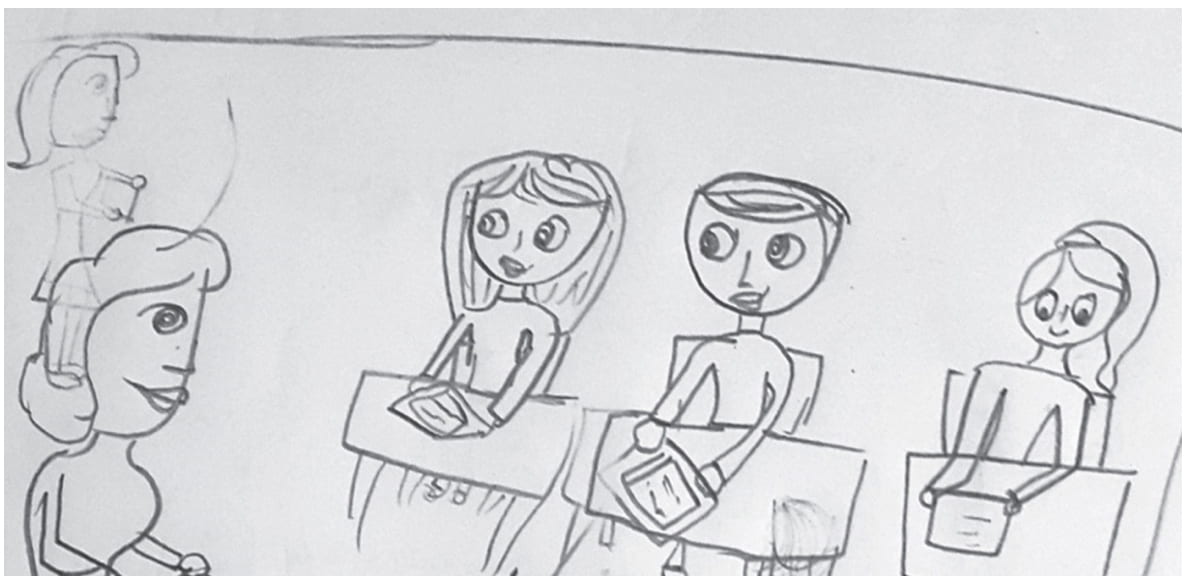Children's experiences of classrooms: drawing on the authority of their own voices
By Blog Editor, IOE Digital, on 16 January 2018
Eleanore Hargreaves.
I was advising my daughter about her education when she remarked, ‘Well, I’m not like you!’
Children may experience classroom teaching in ways that, as teachers (or parents), we have not imagined. By finding out from children themselves what is making them tick, we can adapt teaching to make it supportive of both their formal attainment and, crucially, of the social factors that facilitate their higher attainment as well as their personal flourishing. These are the ideas explored in my new book, Children’s Experiences of Classrooms. The book is contextualised within Michael Schiro’s framework of four common purposes for state-funded schooling. Classrooms are explored in relation to which purpose seems to be emphasised in each different context: acquiring discrete bodies of ‘knowledge’; preparing pupils for employment later; nurturing the individual; or transforming society towards social justice.

The book was written as a strong reinforcement of the UCL concept of the Connected Curriculum in that it draws on and describes the classroom research of MA students studying at the UCL Institute of Education (IOE). As they worked towards producing a dissertation, they explored pupils’ perceptions about their classroom learning. The narratives they produced illustrated the children’s capacity to express powerful insights about learning and its embeddedness within the socio-cultural context of their particular classroom. For example, the pupils explained how they found teachers’ behaviour towards them. One pupil, Sapphire, admitted that when she had to sit a test in class, “Everything just goes blank… Sometimes I feel like everyone’s so much taller than me… and then the teacher’s like really, really big”. Another child, Miheer, commented, “It was annoying to see that the teachers could freely express their emotions in class, but we were expected to exercise emotional control.”
Some primary pupils tried to ‘trick’ the teacher so that the pupils could feel more empowered. Pupil Lecia explained:
You’ve got ‘normal’ as ‘not standing out’, just being with the crowd. And you’ve got ‘normal’ as ‘feeling yourself’. Two different things! [Tricks help you to ‘feel yourself’] because you’re doing your own thing! You’re not being the same every day…
Pupils explained how useful they found choice during learning tasks. One child commented that otherwise he felt like a postman who just delivered letters. Some other children described the benefits of choosing who you want as a ‘talk partner’. For example, Genesis said, “I will choose a sensible person. I will not just choose a friend as I get detracted and I talk too much”; while Eduardo noted, “If you are doing partner work and you don’t get on with them, it will affect your learning”. In relation to so-called ‘ability’ grouping, pupils described the shame they felt of being moved ‘down’ to a lower group. Curtis found that this shame even infiltrated his relationships at home: “Basically I was moved down and [because of that] I was barely talking to my parents or my sisters”.
Teachers’ narratives are incorporated into the theoretical framework of the book, and my own research is described alongside theirs. My research included further investigation of how children responded to classrooms, mainly in England but also in Egypt and Palestine. The book focuses on the distinction between authority and authoritarianism in the classroom and how pupils experienced both. Pupils talked about how the teacher’s feedback could either encourage or undermine their flourishing. Laila’s insight was sobering:
The teacher’s feedback made me not listen and it was really annoying! I can do this, but you keep repeating it, actually distracting me instead of- because I was told to think, and then-
On the other hand, Esther’s evaluation of her teacher’s written feedback was more positive:
I think this bit’s good because it actually tells, ‘Detail and description’. Then I know I’m good at that and I need to keep that up. But just putting ‘Excellent’ doesn’t help actually.
More extreme, children told us when and why they felt fear in the classroom and how this affected their learning. For example, a pupil in a Palestinian classroom told us that ‘My brain stops’. Others said, ‘I can’t listen carefully’, ‘I just pretend that I am listening’ and ‘I slow down’, ‘My hand shakes’.

The children’s perspectives are now being fed back into the teaching of new cohorts of students at the IOE and beyond. The original teacher researchers sometimes expound upon their findings during MA sessions and other networking events. My own interest in the theme of grouping by ‘ability’ was inspired through Sean McNamara’s MA research in one primary classroom. The pupils’ accounts of its destructive effects on their learning strategies led to the submission of a funding bid to the Leverhulme Trust in order to explore the issue in greater depth. This bid was successful and the five-year longitudinal study of primary children in ‘bottom’ groups is due to start on 1 April. This study started with pupil Laila’s comment about ‘differentiated’ teacher feedback. She exclaimed, ‘On the lower [group] tables, she says, ‘Oh, we’ll help you!’… but then she tries to give you the answer… I want to work this out by myself… I really want to know how to do it!’

 Close
Close



